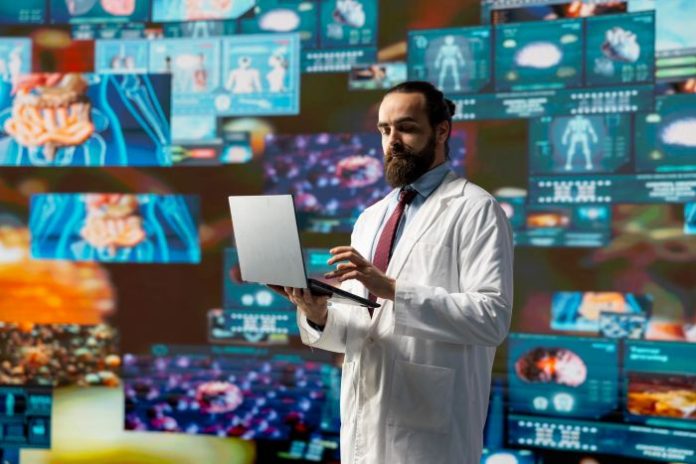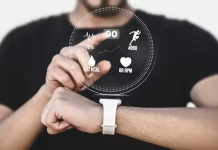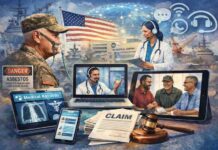Modern medicine has advanced quickly, but medical malpractice cases have also become more complex. Today, these cases depend not only on doctors’ opinions but also on modern technology, expert testimony, and digital evidence to find out what went wrong. Tools like electronic health records, diagnostic imaging, and artificial intelligence have changed how lawyers, experts, and courts assess claims of negligence in healthcare.
To navigate this changing legal environment, it is important to have both medical knowledge and an understanding of technology. Working with an experienced lawyer helps victims of malpractice by ensuring they have advocates who can effectively use expert testimony and digital tools. These professionals can turn complicated evidence into clear arguments that hold negligent providers accountable.
Key Takeaways
- Modern medicine’s advancements complicate medical malpractice cases, which now rely on technology and digital evidence.
- Expert witnesses play a crucial role in establishing negligence, requiring a deep understanding of both medical standards and technology.
- Electronic Health Records and diagnostic tools provide vital evidence, helping attorneys build stronger cases against negligent practitioners.
- Florida law mandates strict requirements for expert testimony in malpractice cases, ensuring the credibility and relevance of expert opinions.
- Combining technology with expert insights transforms how medical malpractice cases are litigated, promoting accountability in healthcare.
Table of Contents
- The Important Role of Technology and Expert Testimony in Malpractice Litigation
- How Technology Strengthens Evidence in Modern Cases
- The Intersection of Medicine, Law, and Technology
- Types of Experts Commonly Involved in Medical Malpractice Cases
- Using Technology to Reconstruct Medical Negligence
- Overcoming Challenges in Digital Evidence and Expert Testimony
- Florida’s Legal Requirements for Expert Testimony
- Bridging the Gap Between Innovation and Accountability
The Important Role of Technology and Expert Testimony in Malpractice Litigation
Expert witnesses are the cornerstone of any medical malpractice case. Their testimony helps jurors and judges understand whether a healthcare provider’s conduct met the accepted “standard of care.” In most cases, proving malpractice requires showing that a similarly trained medical professional would have acted differently under the same circumstances.
These experts — often physicians or specialists in the relevant field — review medical records, procedures, and outcomes to identify where the deviation occurred. Their opinions provide the framework for establishing negligence, causation, and damages. Without credible expert testimony, even strong malpractice claims struggle to meet the evidentiary threshold required by Florida courts.
How Technology Strengthens Evidence in Modern Cases
The digital transformation of healthcare has created new opportunities for both patients and attorneys to uncover evidence of negligence. Electronic Health Records (EHRs), for example, provide time-stamped documentation of treatments, prescriptions, and communications between providers. When inconsistencies or missing data appear, they can point to potential wrongdoing.
Other technologies, such as diagnostic imaging software, wearable health monitors, and telemedicine logs, can reveal crucial details about how care was delivered. A seasoned Fort Myers injury lawyer can work with technical experts to analyze this evidence, reconstruct treatment timelines, and identify precisely where medical standards were breached — ensuring that victims’ claims are supported by clear, data-backed proof and expert testimony.
The Intersection of Medicine, Law, and Technology
Medical malpractice cases now demand a multidisciplinary approach. Attorneys must not only interpret medical data but also understand how to analyze technological evidence. For instance, metadata from EHRs can show when records were created, altered, or accessed — potentially exposing attempts to conceal mistakes.
Collaborating with forensic analysts and medical technology experts allows lawyers to authenticate digital evidence and connect it directly to human decision-making errors. This integration of medicine, law, and tech transforms the litigation process, turning complex data into compelling courtroom narratives.
Types of Experts Commonly Involved in Medical Malpractice Cases
Building a successful malpractice case often requires testimony from multiple specialists who can explain different aspects of the incident. Depending on the facts, attorneys may work with:
- Medical specialists such as surgeons, anesthesiologists, or nurses familiar with the field in question.
- Radiology or pathology experts to analyze test results and identify misread diagnostics.
- Life care planners who project long-term medical and financial needs for victims.
- Forensic data analysts who interpret EHRs and digital communications.
- Hospital administration experts who assess whether proper protocols and oversight were followed.
Each expert provides a distinct perspective that strengthens the overall argument and helps jurors grasp the full scope of the medical error.
Using Technology to Reconstruct Medical Negligence
Technological advancements have also changed how attorneys demonstrate negligence visually. Tools such as 3D modeling, digital recreations, and animation software can illustrate surgical procedures, medication errors, or delayed diagnoses in ways that words alone cannot. These visuals simplify complex concepts and make the evidence accessible to non-medical audiences.
Moreover, artificial intelligence and data analytics now assist in identifying patterns of malpractice. For instance, AI can analyze hospital records to detect repeated procedural errors by the same provider. These insights empower attorneys to uncover systemic negligence rather than treating incidents as isolated mistakes.
Overcoming Challenges in Digital Evidence and Expert Testimony
While technology strengthens cases, it also presents new challenges. Electronic records can be incomplete, altered, or difficult to interpret without technical expertise. Opposing counsel may argue that data has been misrepresented or taken out of context. Similarly, experts must withstand rigorous cross-examination about their methods, credentials, and potential biases.
To overcome these hurdles, attorneys meticulously verify data integrity and prepare experts thoroughly for testimony. Strong collaboration between legal teams and technical professionals ensures that evidence remains credible, authenticated, and persuasive throughout trial proceedings.
Florida’s Legal Requirements for Expert Testimony
Florida law imposes strict requirements on expert witnesses in medical malpractice cases. Under §766.102 of the Florida Statutes, experts must be actively practicing or teaching in the same specialty as the defendant at the time of the alleged negligence. This ensures that expert testimony reflects current standards and practices within the profession.
Additionally, before filing a malpractice lawsuit, Florida requires a pre-suit investigation supported by a verified medical expert affidavit stating that there are reasonable grounds to believe negligence occurred. This procedural safeguard helps filter out frivolous claims while emphasizing the importance of credible expert evaluation at every stage.
Bridging the Gap Between Innovation and Accountability
The intersection of expert testimony and technology has redefined how medical malpractice cases are built, argued, and proven. By merging data analysis with human expertise, modern litigation exposes patterns of negligence that might have gone unnoticed in the past. This progress not only benefits individual victims but also promotes greater transparency and accountability in healthcare.
When handled by skilled attorneys, technology becomes a tool for truth — one that ensures medical professionals and institutions are held to the highest standard of care. Through expert testimony and insight and innovative evidence, victims of malpractice can achieve justice while the medical community continues to learn, adapt, and improve.











